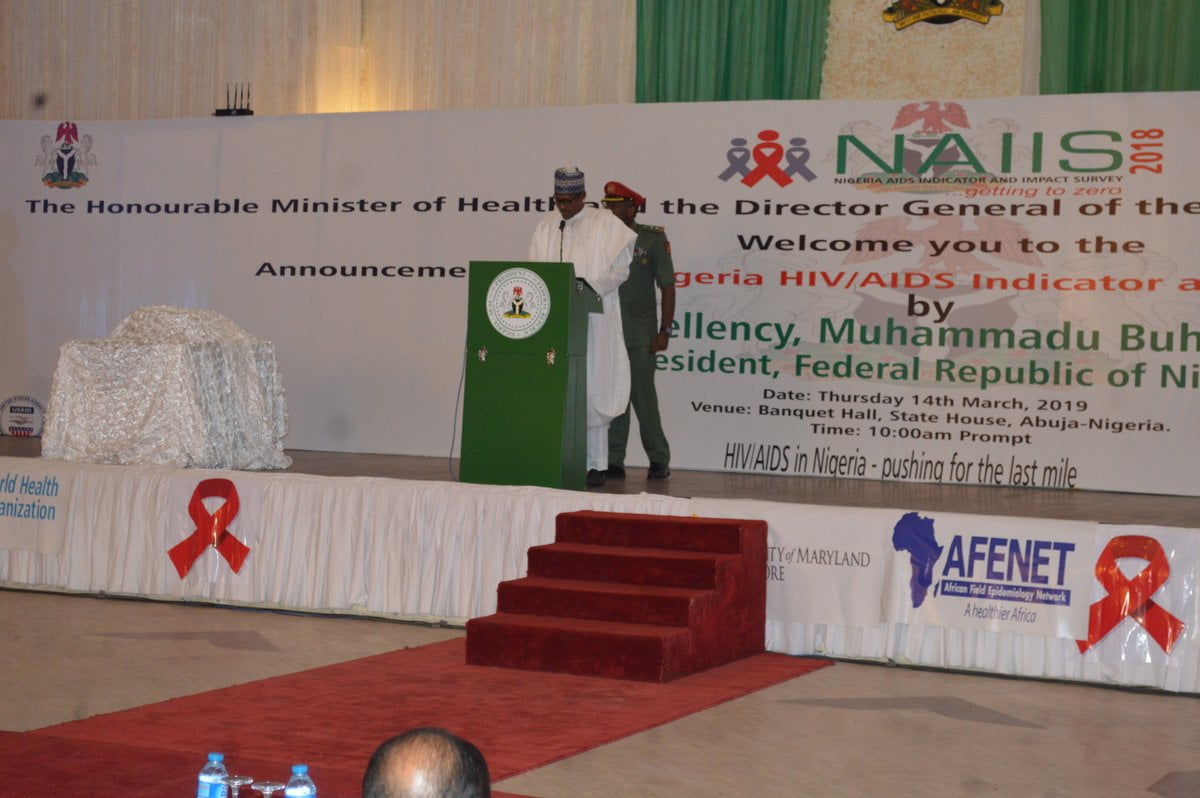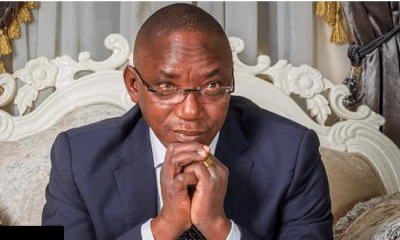Health
President Buhari Speaks As Nigeria Improves On HIV/AIDS Ranking

President Muhammadu Buhari has performed the first function outside politics barely one week after both presidential, National Assembly, the governorship and State Houses of Assembly elections.
Buhari was spotted when he launched Nigeria HIV/AIDS Indicator & Impact Survey (NAIIS) put together by the Ministry of Health in Abuja.
Below are some of the images from the event;
A great day for us in the health sector, as President @MBuhari launched the Nigeria HIV/AIDS Indicator & Impact Survey @NAIISNG today. The prevalence of the disease is now 1.9%. We shall continue to strive to reduce the burden of HIV/AIDS in our dear country. pic.twitter.com/wA956SY2No
— Prof. Isaac Adewole (@IsaacFAdewole) March 14, 2019
President Buhari who also formally unveiled the findings of the 2018 Nigeria HIV/AIDS Indicator and Impact Survey (NAIIS) said the new prevalence of HIV and AIDS according to the result gives an estimate of 1.9 million people living with HIV in Nigeria presently.
According to him, this is an improvement to what was obtained in 2014, when the country was estimated to have 3.1 million people living with the virus in the country.
Mr Buhari also noted that the results would provide the government with appropriate information that would enable the country beat the 2030 target of ending the epidemic.
“This result will provide the government with information to move forward in the HIV fight based on scientific data. We are already a step ahead in this regard. “However, we cannot celebrate yet as we are more committed to ensuring that more people are placed on treatment. “Now that we have the data, I urge us all to work together to ensure that we deliver ahead of 2030,” he said.
He added that in line with his administration’s commitment to healthcare, the government would ensure more people living with HIV are put on free anti-retroviral treatment. He also appreciated the U.S. government, PEPFAR, Global Fund, and all partners that contributed to the success of the survey.
He, however, tasked the Ministry of Health and the National Agency for the Control of AIDS (NACA) to work closely with state governments with high HIV prevalence by ensuring that the epidemic was drastically reduced.












